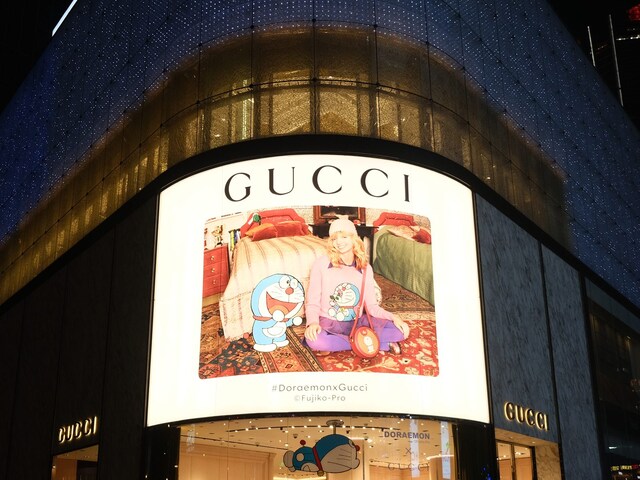vcdiversity.org – In the ever-evolving landscape of fashion, few brands have managed to capture the zeitgeist quite like Gucci. Once a symbol of old-world elegance and understated luxury, Gucci has undergone a remarkable transformation, emerging as a powerhouse of modern luxury fashion. This phenomenon, often referred to as the “Gucci Effect,” has not only redefined the brand’s identity but has also had a profound impact on the broader luxury fashion industry. This article delves into the essence of the Gucci Effect and its implications for luxury fashion in the modern era.
The Gucci Effect: A Renaissance of Luxury
Under the creative direction of Alessandro Michele, who took the helm in 2015, Gucci has experienced a renaissance. Michele’s eclectic, gender-fluid, and maximalist aesthetic has resonated with a new generation of consumers, propelling Gucci to the forefront of fashion. The brand’s ability to blend high fashion with pop culture, art, and history has created a unique narrative that speaks to the modern consumer’s desire for individuality and expression.
The Power of Storytelling
Gucci’s success can be attributed, in part, to its mastery of storytelling. Each collection tells a story, often drawing on themes of nostalgia, surrealism, and inclusivity. This narrative-driven approach has not only made Gucci’s products more desirable but has also fostered a sense of community among its customers. The brand’s campaigns, which feature a diverse array of models and celebrities, further this narrative, making Gucci’s story one that many can relate to and aspire to be a part of.
The Digital Revolution
In the digital age, luxury brands must navigate the complexities of social media and e-commerce while maintaining their exclusivity. Gucci has been at the forefront of this digital revolution, leveraging platforms like Instagram to engage with its audience in innovative ways. The brand’s use of augmented reality, virtual try-ons, and digital campaigns has not only increased its visibility but has also allowed it to remain relevant and accessible to a global audience.
Sustainability and Innovation
As consumers become more environmentally conscious, luxury brands are under increasing pressure to adopt sustainable practices. Gucci has responded to this challenge by committing to reducing its environmental impact. The brand has introduced sustainable lines, such as Gucci Circular Lines, which feature recycled and organic materials. Gucci’s commitment to innovation extends beyond sustainability, with the brand exploring new technologies like blockchain to combat counterfeiting and ensure the authenticity of its products.
The Gucci Effect on the Industry
The Gucci Effect has had a ripple effect across the luxury fashion industry. Other brands have taken note of Gucci’s success, leading to a broader shift towards more inclusive, narrative-driven, and digitally savvy approaches. The industry is now more open to experimentation and collaboration, with luxury brands increasingly partnering with artists, designers, and even other brands to create unique and engaging experiences for consumers.
Conclusion:
The Gucci Effect is more than just a revitalization of a single brand; it represents a paradigm shift in luxury fashion. By embracing innovation, storytelling, and digital engagement, Gucci has set a new standard for what luxury can mean in the modern era. As the industry continues to evolve, the lessons of the Gucci Effect will undoubtedly shape the future of luxury fashion, emphasizing the importance of creativity, sustainability, and connection in a rapidly changing world.
